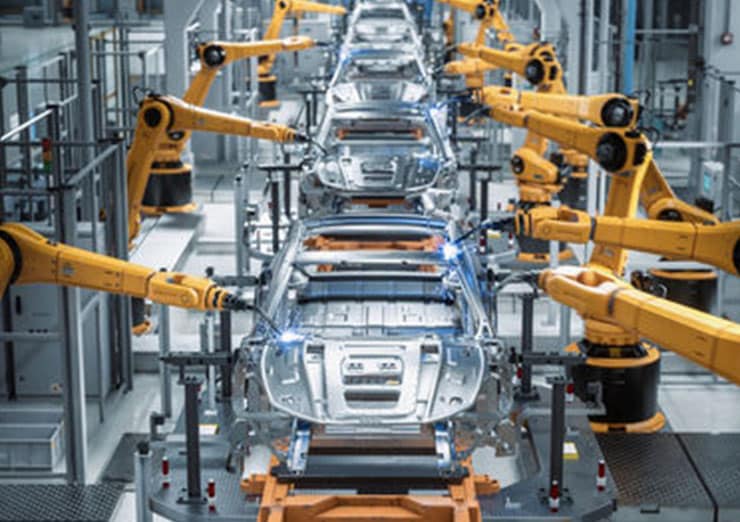Green Industries
Sustainable Manufacturing

Key driving factors and best practices for sustainable manufacturing
The green transformation of China’s manufacturing sector is key for a low-carbon future. Businesses need to become more resource-efficient, embrace new technologies and change the way they operate. This seminar introduced perspectives on best practices for companies regarding sustainable manufacturing.
A holistic approach of energy saving in production
Julia Asplund, Scania, gave an overview about energy efficiency in Scania and how the drive towards decarbonization influenced their new zero-emission factory in Rugao in China’s Jiangsu province. She elaborated on Scania’s holistic view of energy saving in production which covers four levels: organizational, site, workshop and process levels.
Looking on the organizational level Scania focuses on global as well as Chinese sustainability targets and scientific reasoning for implementing their measures into their new factory in Rugao. This includes, for example, standardized working processes to incorporate energy efficiency, continuous energy awareness training for their employees and project leaders and many more targets. On the remaining levels they mainly focus the three Rs: renewable, re-use and reduce. Julia Asplund explained this more in detail with different first-hand examples used at the plant.
Enhancing manufacturing sustainability – an infrastructure perspective
Mr. Zhang Shuhao, Drees & Sommer, talked about enhancing manufacturing sustainability and future-oriented manufacturing from an infrastructure perspective and from a product perspective. As a case study he presented phase 1 of Schaeffler’s new campus in Taicang.
After a general introduction Zhang Shuhao explained the first phase of Schaeffler’s future- oriented campus in Taicang. The new campus was built focusing on the DGNB certification system. As an example, the indoor thermal comfort and heating is based on the DGNB targets and materials used in the offices are made sure to fit the DGNB requirements, thus, making Schaeffler’s Taicang campus to the first gold certified production building in China.
The keynote speeches were followed by a Q&A round further highlighting achievements and challenges of developing a sustainable manufacturing environment.
We are happy to provide a platform for exchange of best practices from businesses for businesses!
Similar articles
More from German Centre Beijing
China Medtech
Join our seminar series and learn more about the opportunities for innovative German solutions in China's fast-growing medtech market.
China’s revised law: Manage your liability with Rödl & Partner
This training provides valuable insights into the increased liabilities and rights for company managers and directors in China, as imposed by the recent revisions to Chinese criminal and company law.



